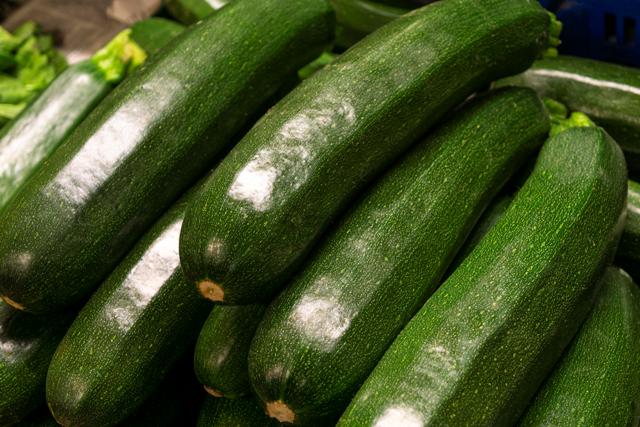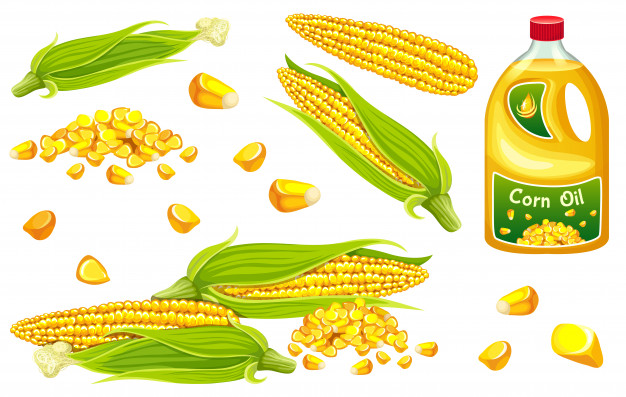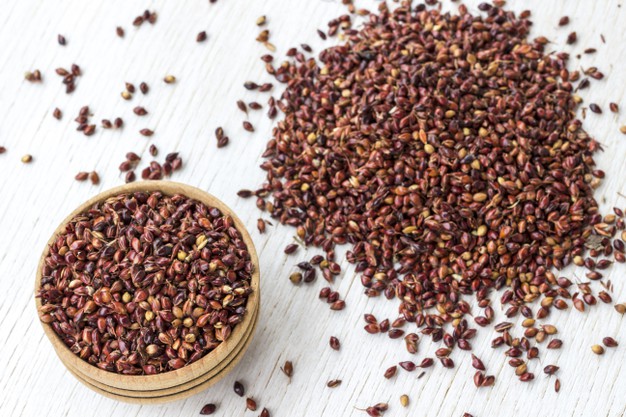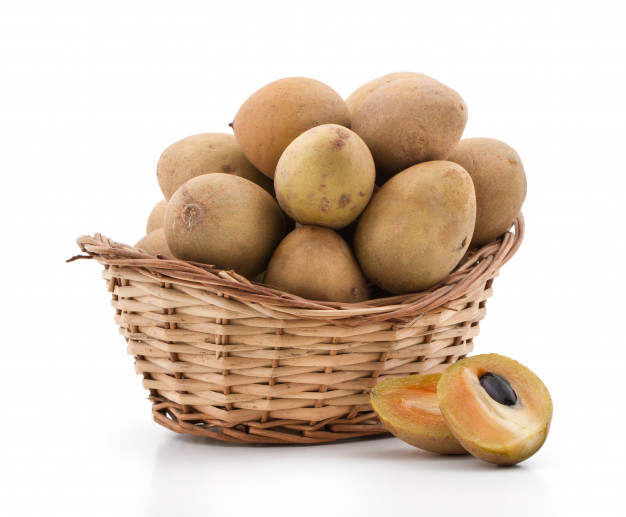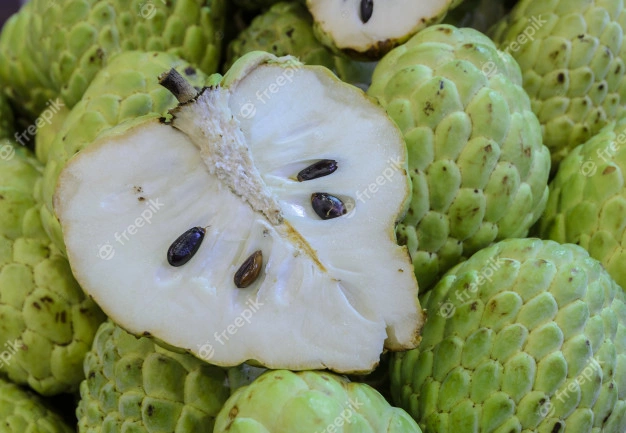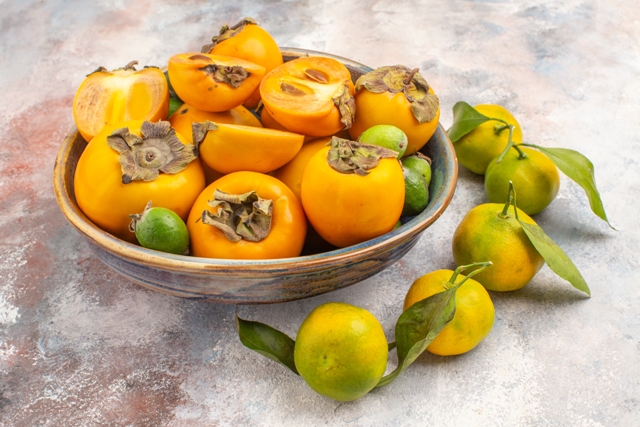Zucchini is a nutrient dense food belongs to Cucurbitaceae family. The name zucchini is derived from an Italian word ‘zucca’ that means squash. It is loaded with various imperative nutrients that offer numerous health benefits.
Types
Zucchini present in various forms. Below points will discuss about some popular types of zucchini and their characteristics –
Black zucchini: It is very common type of zucchini. It has dark green coloured skin and white flesh
Gold rush: this type of zucchini has golden colour
Zucchini Gadzukes: this type of zucchini is green in colour and has green coloured ridges
Aristocrat: this type of zucchini is also green in colour and has waxy skin
Nutritional profile
- It contains lesser amount of carbohydrate thus considered as a low glycemic food
- It contains desirable amount of fibres
- It contains negligible amount of protein as well as fat and it is totally free from cholesterol
- Whereas it is loaded with several important vitamins like Vitamin A, Vitamin C, Vitamin K, Vitamin B1, B2, B3, B5, B6 and B9
- It is also packed with various important trace elements such as calcium, phosphorus, potassium, manganese, magnesium, copper, selenium and zinc

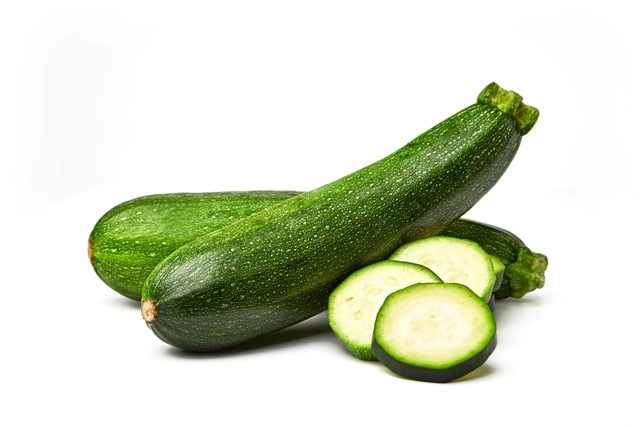
Biological activities
Antioxidant activity
- Its micronutrient and phytonutrient components are responsible for protecting the body from free radical induced oxidative damages as they has antioxidant activities
- It plays vital role in preventing cellular damages thus improves cellular activities, which ultimately promotes wellbeing
- It is also associated with improving the functionality of immune cells, which subsequently strengthen the defense mechanism of body and decreases the susceptibility of becoming ill
Anti-inflammatory activity
- It contains various imperative components like superoxide dismutase, glutathione dismutase, Vitamin A, Vitamin C all of which exert anti-inflammatory activities and help in decreasing the level of inflammatory mediators in body that prevent inflammation
- It also helps in preventing swelling and pain
Anti-carcinogenic activity
- It plays vital role in suppressing the growth of cancerous cells in body by exerting anti-carcinogenic activity
- It is very effective for decreasing the prevalence of colon cancer
Health benefits
Role on digestive health
- Individual who suffer from indigestion should include zucchini in their diet as it plays vital role in promoting the activity of digestive system
- It is very effective for preventing flatulence, bloating and abdominal cramp
- Its fibre component is responsible for improving bowel movement that helps in preventing constipation
- It is also very helpful for improving colonic health
- It helps to improve gut health as well
- Moreover its consumption is extremely useful for dealing with abdominal issues

Role on metabolism
- Being a good source of B vitamins especially Vitamin B1, B2, B3 and B6 its consumption is thought to be very effective for promoting metabolism
- It helps to keep an individual energetic by boosting up the energy level of body
- It is also related with preventing general weakness and fatigue
Role on circulation
- It plays vital role in maintaining healthy circulation
- Its folic acid components are accountable for the maturation of RBC that improves circulation in many folds
- Its potassium component helps in decreasing hypertension, which also promotes circulation
Role on weight management
- Regular consumption of zucchini is very much helpful for weight reduction
- Its high fibre content and water content are responsible for providing a felling of stomach fullness, which helps to reduce appetite and prevents over eating as a result regulate the energy balance of body and facilitates weight reduction
- It contains very less amount of fat as well thus its consumption does not increase the risk of gaining weight as it helps to fulfill the hunger with very few calories

Role on vision
- Consumption of zucchini is very much helpful for improving overall eye health as it contains significant amount of Vitamin A
- It is also rich in lutein and zeaxanthin, which exert antioxidant activities that protect the eye from oxidative damages hence reduces the susceptibility of eye disorders
- It plays significant role in improving vision as well especially in dim light
- It helps to protect the eye from the high energy light wave
- It is also very effective for lowering the prevalence of macular degeneration, cataract and glaucoma
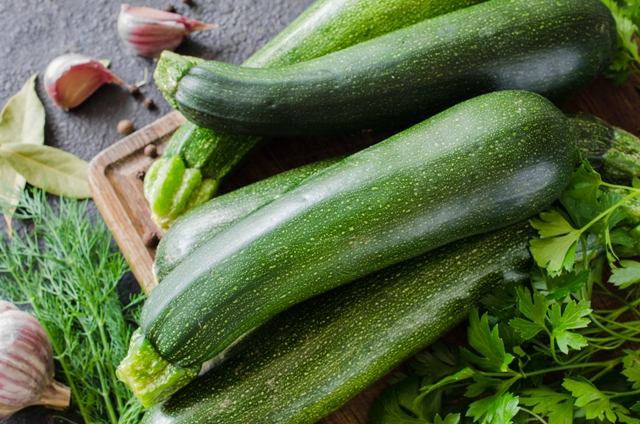
Role on maternal health
- Consumption of zucchini during pregnancy is very much beneficial as it provides adequate amount of B vitamins, which help in metabolism and enhance energy level in body. Increase in energy level is very much important during pregnancy as it is a catabolic phase
- It is rich in folic acid thus its consumption is also very much helpful during pregnancy as it helps to decrease the prevalence of congenital anomalies
-
 It contains magnesium as well, which is another important trace element of gestational period that plays vital role in reducing the risk of premature labor or gestosis
It contains magnesium as well, which is another important trace element of gestational period that plays vital role in reducing the risk of premature labor or gestosis
Role on skeletal system
- It contains adequate amount of magnesium and Vitamin K, both of which play vital role in strengthening the entire skeletal system
- Vitamin K helps in bone metabolism
- Whereas magnesium helps in enhancing calcium uptake by the body, which ultimately helps in bone mineralization as a result increases bone mass and density
- Its consumption is very effective for preventing bone thinning and fractures
- It also helps to improve the symptoms of osteoporosis
Therapeutic uses
It has been traditionally used for various therapeutic purposes like –
- It helps in decreasing blood sugar concentration thus it is considered as a healthy food for diabetic patient. It is also associated with enhancing insulin sensitivity that plays vital role in stabilizing blood sugar level
- It helps to decrease the concentration of cholesterol in body thus lowers the risk of hypercholesterolemia
- It helps to promote cardiac health as well and significantly decreases the risk of developing cardio vascular diseases. It decreases the prevalence of strokes and heart attacks too
- It is also very effective for keeping the level of thyroid hormones in normal range and reduces the prevalence of thyroid disorders
- It helps to promote the functionality of adrenaline gland as well
- Its anti-inflammatory activities, copper component and Vitamin C component are responsible for treating asthma
- It is very effective for improving skin health as it contains various imperative nutrients that provide proper nourishment to the skin and make the skin healthy and supple. It helps to prevent ageing as well
- It is also very effective for preventing gout
- It plays significant role in improving prostate health
- It helps in the growth and development of brain and also improves memory as well as cognition
- It is very helpful for improving mental health as well
- It helps to promote the health and functionality of connective tissue as Vitamin C present in zucchini helps in collagen synthesis

Culinary uses
- It can be used with other vegetables for preparing soup
- It can be also consumed with salad
- It can be stuffed with other vegetables and can be baked
- It can be blended in smoothie as well
- It can also be consumed with Greek yogurt dip or hummus
Risk factors
- Overconsumption of zucchini can cause digestive disorders like nausea, vomiting, diarrhoea, abdominal distress etc
- It can also causes allergic reaction
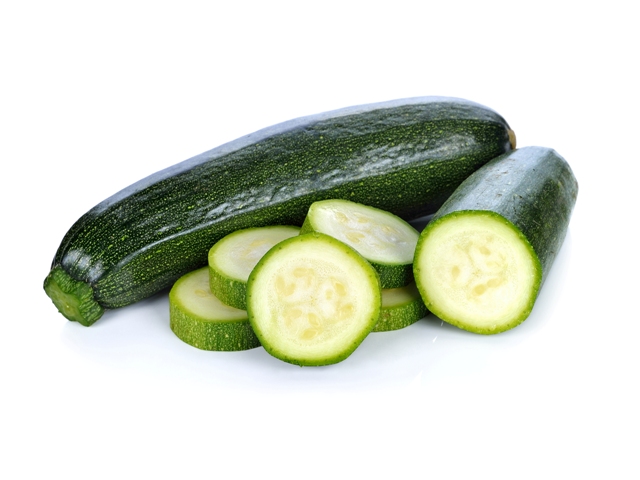
Source:
Ben-Nun, L., 2019. Characteristics of Zucchini. Ben-nun, L., Ed.
Díaz, M.T.B., Font, R., Gómez, P. and Celestino, M.D.R., 2020. Summer squash. In Nutritional Composition and Antioxidant Properties of Fruits and Vegetables (pp. 239-254). Academic Press.
Hamissou, M., Smith, A.C., Carter Jr, R.E. and Triplett II, J.K., 2013. Antioxidative properties of bitter gourd (Momordica charantia) and zucchini (Cucurbita pepo). Emirates Journal of Food and Agriculture, pp.641-647.
Ratnam, N., Naijibullah, M. and Ibrahim, M.D., 2017. A review on Cucurbita pepo. Int J Pharm Phytochem Res, 9, pp.1190-4.
Rolnik, A. and Olas, B., 2020. Vegetables from the Cucurbitaceae family and their products: Positive effect on human health. Nutrition, 78, p.110788.
